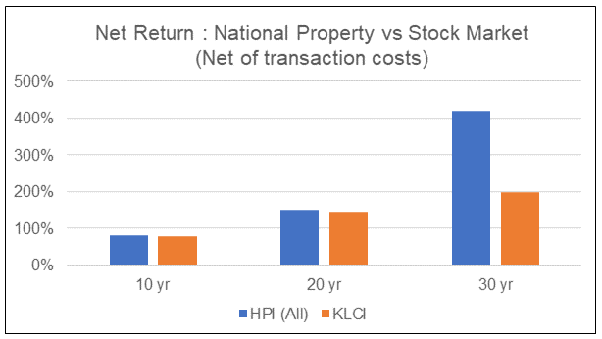
When investing in industrial stocks, investors should keep in mind that these securities are highly correlated with the economy. Investing in industrial stocks may pose additional risk because of this. This is especially true of buy-and hold investors who attempt to time the market so as to avoid suffering from painful declines. Stocks in the industrial sector can fall sharply if negative economic news is received. Therefore, investors should monitor the market's movements carefully.
Caterpillar
If you're looking for a long-term investment, consider investing in Caterpillar industrial stocks. The company has done well in recent times, but it's important not to forget that past performance is no guarantee of future success. The company's first quarter in 2020 saw a 30% drop in revenue, making it one of its worst quarters. The company is expected to prosper over the next few years thanks to new construction.

Emerson Electric
Emerson Electric might be a good choice if you are looking for an industrial stock. This multi-industrial conglomerate has two main business platforms: automation solutions and commercial and residential solutions. Emerson also offers a wide range of tools, compressors and home products. Emerson is home to many household brands. Let's look closer at the company and see what you can expect to do as an investor. Let's take a look inside the company's business plan:
Flexibility
A company must be flexible and strong in order to stay relevant and profitable in the industrial sector. We've highlighted 5 industrial stocks that demonstrate a high degree of flexibility and continue to track the market well. Here's why these stocks are attractive for investors. Each of these companies has a strong track record of leveraging its core competencies to lead and prosper. We examine their profitability and industry outlook to see why they are the best investment for the next decade.
Flex (FLEX).
Flex Ltd. (FLEX), is the best place to look if you're in search of industrial stocks. This American multinational electronics contract manufacturer and Singapore-domiciled company is the third-largest original design and equipment manufacturer and original equipment manufacturer in the world. It is located in Singapore, and provides services to customers worldwide. It has more than 64,000 employees worldwide, as at January 2018. This stock is one of the most promising options for investors looking to buy into the company's fast-growing industrial business.

Flex (CTAS).
While the outlook for its EBIT margins is not surprising, the shift in the company's mix to higher growth markets and the focus on cost discipline is encouraging. Although the stock represents a discount to its core business, the spinoff should unlock significant wealth. The company's growth prospects and its position to profit from secular growth opportunities are excellent. This article will examine the most recent data on Flex (CTAS).
FAQ
What is the trading of securities?
Stock market: Investors buy shares of companies to make money. In order to raise capital, companies will issue shares. Investors then purchase them. Investors then sell these shares back to the company when they decide to profit from owning the company's assets.
Supply and demand are the main factors that determine the price of stocks on an open market. If there are fewer buyers than vendors, the price will rise. However, if sellers are more numerous than buyers, the prices will drop.
There are two methods to trade stocks.
-
Directly from your company
-
Through a broker
How are shares prices determined?
Investors set the share price because they want to earn a return on their investment. They want to make money from the company. So they buy shares at a certain price. The investor will make more profit if shares go up. The investor loses money if the share prices fall.
The main aim of an investor is to make as much money as possible. They invest in companies to achieve this goal. This allows them to make a lot of money.
How can people lose money in the stock market?
Stock market is not a place to make money buying high and selling low. You can lose money buying high and selling low.
Stock market is a place for those who are willing and able to take risks. They may buy stocks at lower prices than they actually are and sell them at higher levels.
They are hoping to benefit from the market's downs and ups. But they need to be careful or they may lose all their investment.
Are bonds tradable?
Yes, they are. They can be traded on the same exchanges as shares. They have been for many years now.
The only difference is that you can not buy a bond directly at an issuer. You will need to go through a broker to purchase them.
This makes buying bonds easier because there are fewer intermediaries involved. You will need to find someone to purchase your bond if you wish to sell it.
There are many types of bonds. Different bonds pay different interest rates.
Some pay quarterly interest, while others pay annual interest. These differences make it easy to compare bonds against each other.
Bonds are very useful when investing money. In other words, PS10,000 could be invested in a savings account to earn 0.75% annually. If you invested this same amount in a 10-year government bond, you would receive 12.5% interest per year.
If you were to put all of these investments into a portfolio, then the total return over ten years would be higher using the bond investment.
Statistics
- Even if you find talent for trading stocks, allocating more than 10% of your portfolio to an individual stock can expose your savings to too much volatility. (nerdwallet.com)
- "If all of your money's in one stock, you could potentially lose 50% of it overnight," Moore says. (nerdwallet.com)
- The S&P 500 has grown about 10.5% per year since its establishment in the 1920s. (investopedia.com)
- Our focus on Main Street investors reflects the fact that American households own $38 trillion worth of equities, more than 59 percent of the U.S. equity market either directly or indirectly through mutual funds, retirement accounts, and other investments. (sec.gov)
External Links
How To
How to Invest Online in Stock Market
Investing in stocks is one way to make money in the stock market. You can do this in many ways, including through mutual funds, ETFs, hedge funds and exchange-traded funds (ETFs). The best investment strategy depends on your risk tolerance, financial goals, personal investment style, and overall knowledge of the markets.
Understanding the market is key to success in the stock market. This includes understanding the different investment options, their risks and the potential benefits. Once you've decided what you want out your investment portfolio, you can begin looking at which type would be most effective for you.
There are three main categories of investments: equity, fixed income, and alternatives. Equity refers to ownership shares of companies. Fixed income refers debt instruments like bonds, treasury bill and other securities. Alternatives include commodities, currencies and real estate. Venture capital is also available. Each option comes with its own pros and con, so you'll have to decide which one works best for you.
Once you have determined the type and amount of investment you are looking for, there are two basic strategies you can choose from. One strategy is called "buy-and-hold." You purchase a portion of the security and don't let go until you die or retire. Diversification, on the other hand, involves diversifying your portfolio by buying securities of different classes. By buying 10% of Apple, Microsoft, or General Motors you could diversify into different industries. Multiple investments give you more exposure in different areas of the economy. It helps protect against losses in one sector because you still own something else in another sector.
Another important aspect of investing is risk management. Risk management will allow you to manage volatility in the portfolio. If you were only willing to take on a 1% risk, you could choose a low-risk fund. On the other hand, if you were willing to accept a 5% risk, you could choose a higher-risk fund.
The final step in becoming a successful investor is learning how to manage your money. A plan is essential to managing your money. Your short-term, medium-term, and long-term goals should all be covered in a good plan. Then you need to stick to that plan! Don't get distracted by day-to-day fluctuations in the market. Stick to your plan and watch your wealth grow.